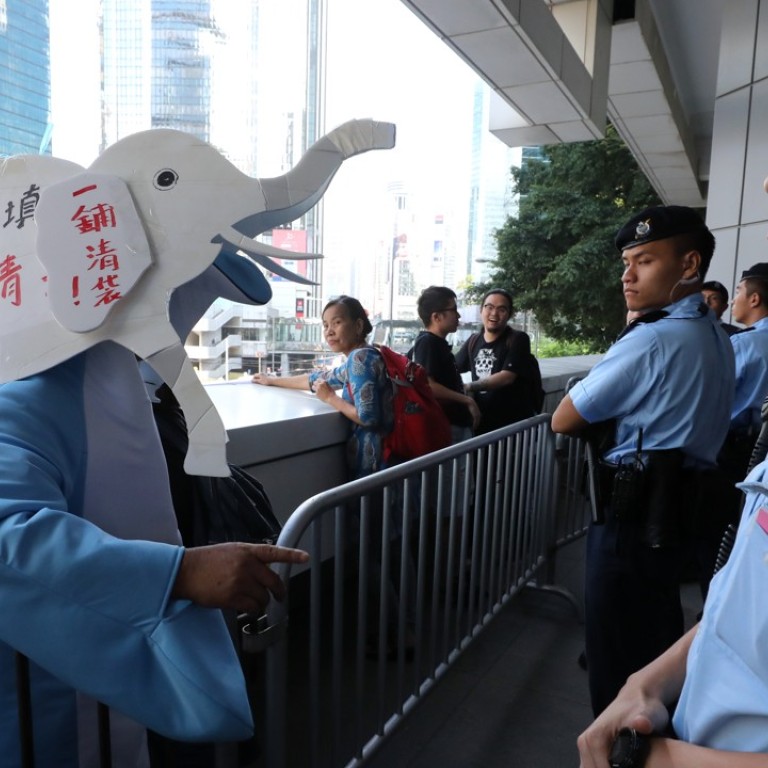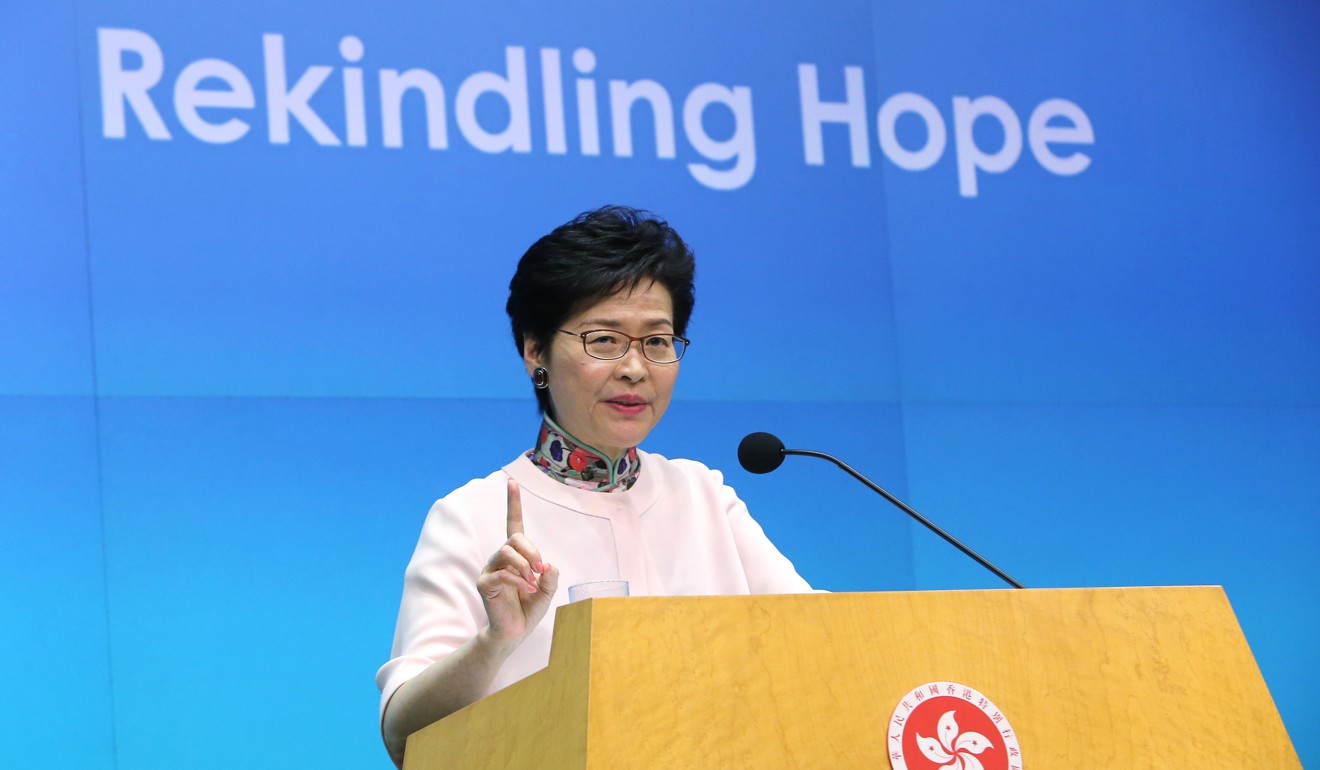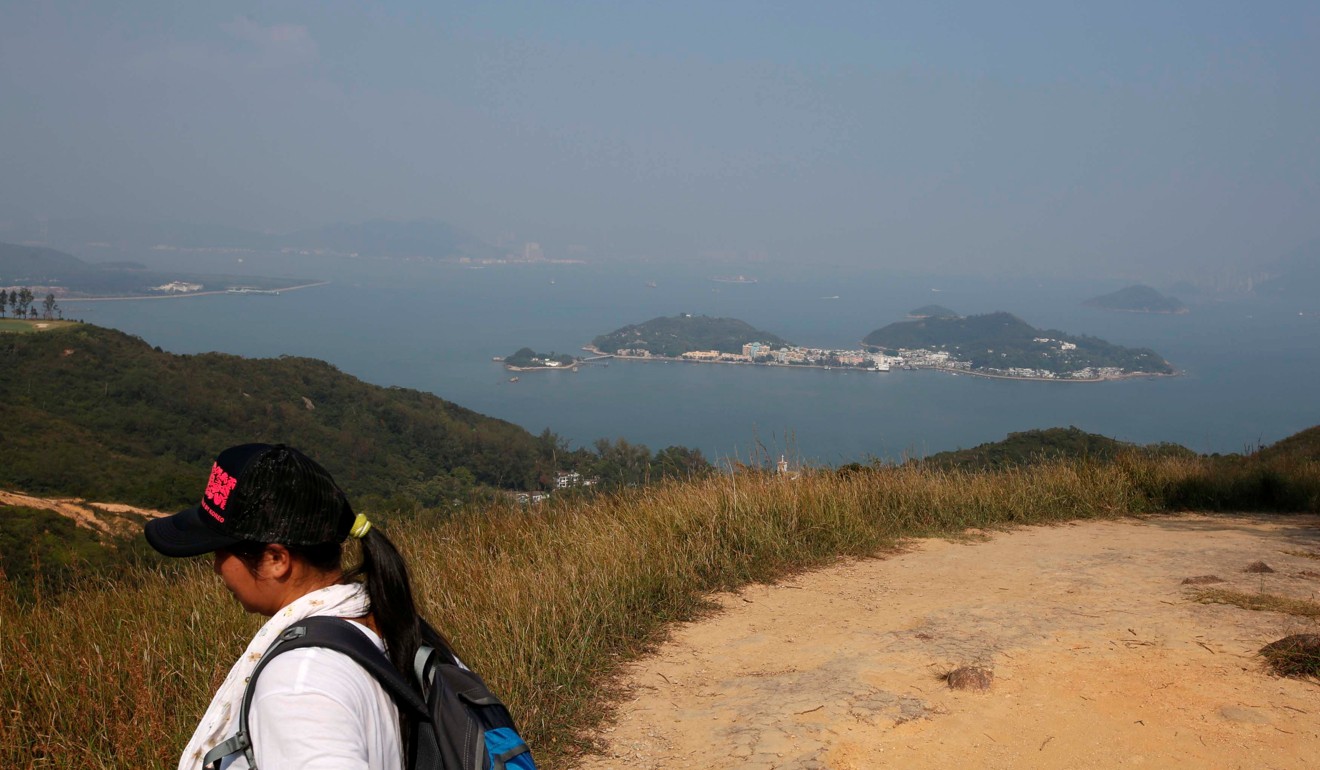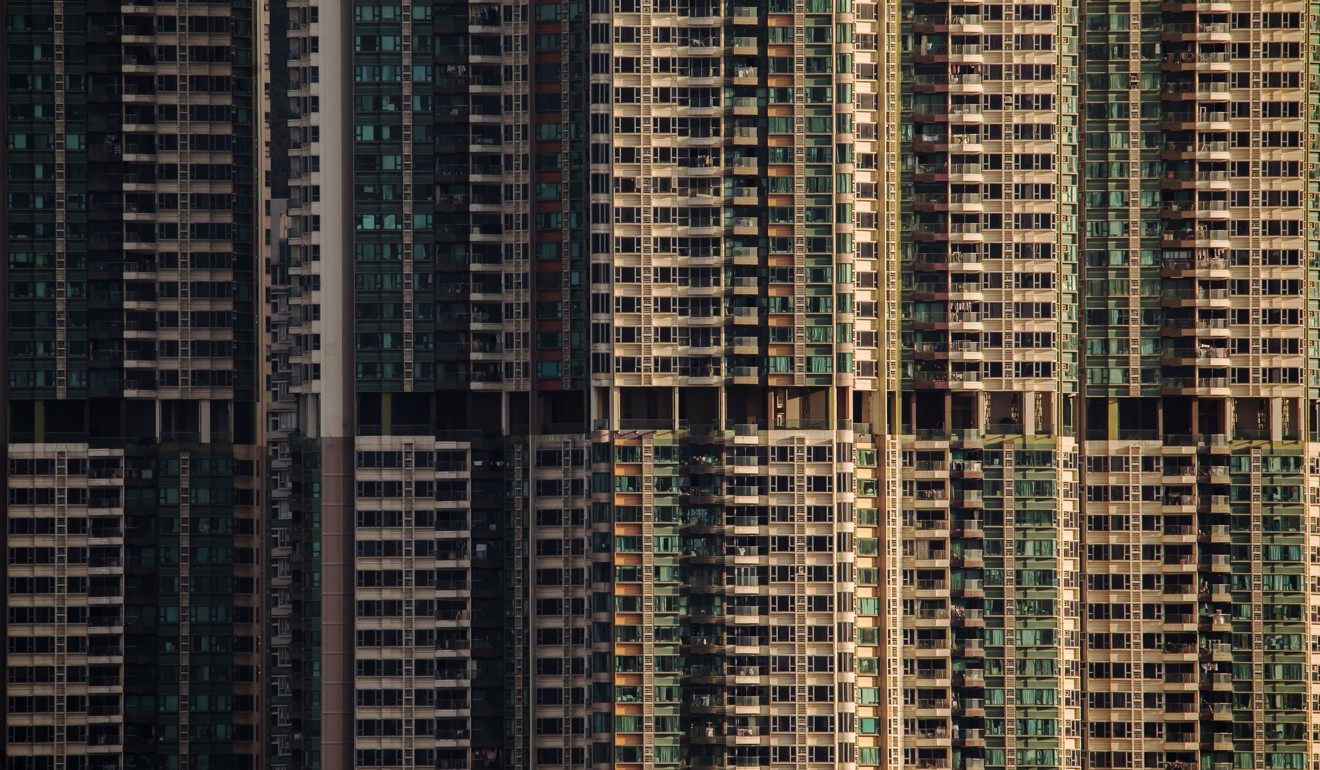
Lantau reclamation project: pro-democracy parties and advocacy groups launch campaign to get 100,000 signatures opposing government plan
- Campaign hopes to garner enough signatures to make government think twice about estimated HK$500 billion project
Pro-democracy parties and advocacy groups have launched a campaign to collect 100,000 signatures against a government proposal to create a mega island in Hong Kong waters.
The campaign, officially announced on Wednesday, has collected some 30,000 signatures since it started on October 10, the day when Chief Executive Carrie Lam Cheng Yuet-ngor revealed the 1,700-hectare reclamation plan in her policy address.
Organisers said the campaign, which is expected to end in mid-December, will be driven by district-level advocacy groups and the parties’ offices via an online platform, street booths and written submissions.

With a district council election coming next year, the groups said even pro-establishment lawmakers would have to consider whether to support the government on the plan if enough voters voiced their objection.
Large-scale reclamation the smart option for Hong Kong’s future
“The campaign is very important, to show public opinion,” said Labour Party lawmaker Fernando Cheung Chiu-hung. “People’s opinions should be respected by the government.”
Cheung said that in countries like Britain, petitions that amass 100,000 signatures or more would trigger a parliamentary debate, while in some states in America, signatures representing 10 per cent of the population could bring about a legally binding referendum.
The reclamation project to the east of Lantau Island, dubbed Lantau Tomorrow Vision, aims to provide land for housing and commercial use in two to three decades. A government source has previously said that the project is estimated to cost HK$500 billion (US$64 billion), or half the city’s fiscal reserves.
Some 6,000 people took to the streets last month to protest the scheme. Some expressed worries the project would be a white elephant and costs would overrun, while others were angry that the government’s choice of reclamation pre-empted an ongoing public consultation to find ways to boost land supply.

Despite the pro-democracy parties’ objection to reclamation, the chief executive is likely to get a pass from Hong Kong’s legislature, which on Wednesday started a three-day debate on a motion of thanks on her policy speech, due to a majority of pro-establishment parties.
Jaco Chow Nok-hang, vice-chairman of the League of Social Democrats, said HK$1 trillion – which critics of the project say could be the final cost – could provide 1.3 million care homes for the elderly and the disabled, or 98 years of free cancer treatment, or 27 years of free university education.

Chow said the reclamation would not help solve Hong Kong’s pressing issues.
“Instead of using the money for some massive long-term infrastructure project, the government should use it to solve those welfare and health care issues,” Chow said.
Other parties backing the campaign include the Democratic Party, the Civic Party, the Association for Democracy and People’s Livelihood, the Neo Democrats, and Demosisto.
Advocacy groups taking part also include the Save Lantau Alliance and the Land Justice League.

